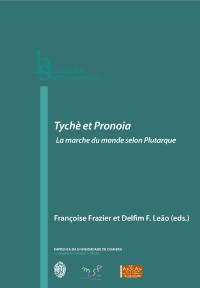Please use this identifier to cite or link to this item:
https://hdl.handle.net/10316.2/31667| Title: | Socrates’ δαιμόνιον in Maximus of Tyre, Apuleius, and Plutarch | Authors: | Roskam, Geert | Issue Date: | 2010 | Publisher: | Imprensa da Universidade de Coimbra Centro de Estudos Clássicos e Humanísticos |
Journal: | http://hdl.handle.net/10316.2/2345 | Abstract: | This paper deals with the positions of three Middle Platonists towards Socrates’ divine sign. Maximus of Tyre tries to explain away the exceptional character of Socrates’ δαιμόνιον and hardly deals with the interaction between the philosopher and his divine sign. Apuleius’ general demonology is much more systematic, yet his more particular interpretation of Socrates’ δαιμόνιον hardly surpasses Maximus’ views. Plutarch’s interpretation in De genio Socratis, on the other hand, is more interesting from a philosophical perspective, as is shown by an analysis of the fundamental interpretations proposed by different speakers in this dialogue. | URI: | https://hdl.handle.net/10316.2/31667 | ISBN: | 978-989-8281-53-1 (PDF) | DOI: | 10.14195/978-989-8281-53-1_8 | Rights: | open access |
| Appears in Collections: | Tychè et Pronoia: la marche du monde selon Plutarque |
Files in This Item:
| File | Description | Size | Format | |
|---|---|---|---|---|
| 1_8-_tyche_et_pronoia.pdf | 328.22 kB | Adobe PDF |  |
Items in DSpace are protected by copyright, with all rights reserved, unless otherwise indicated.
